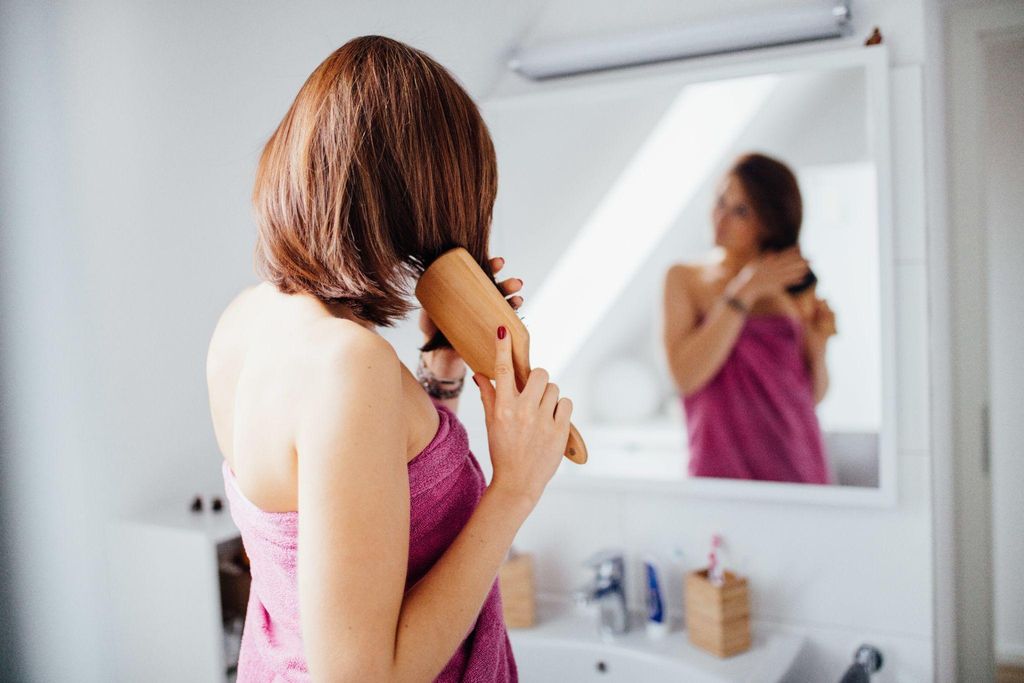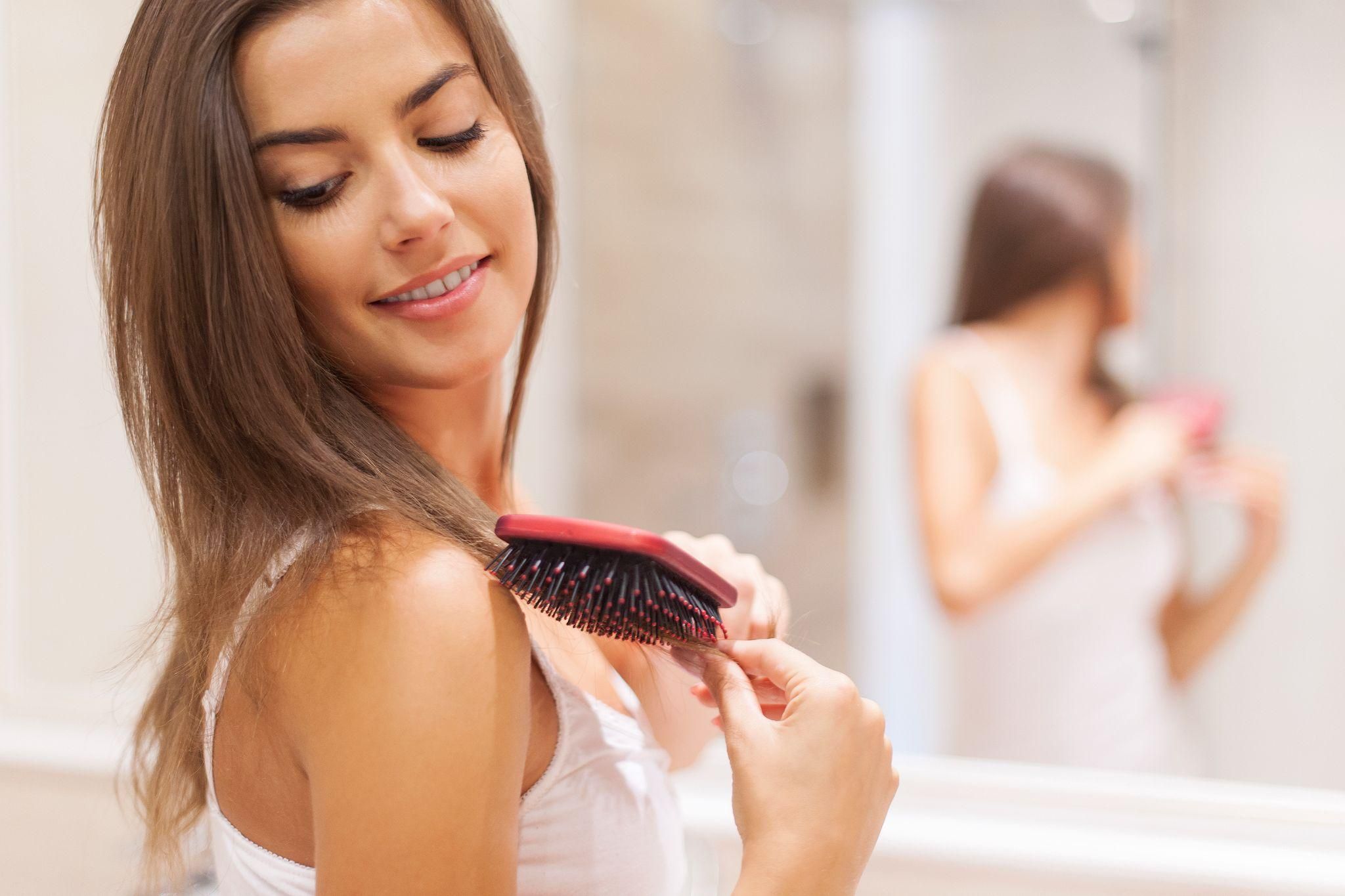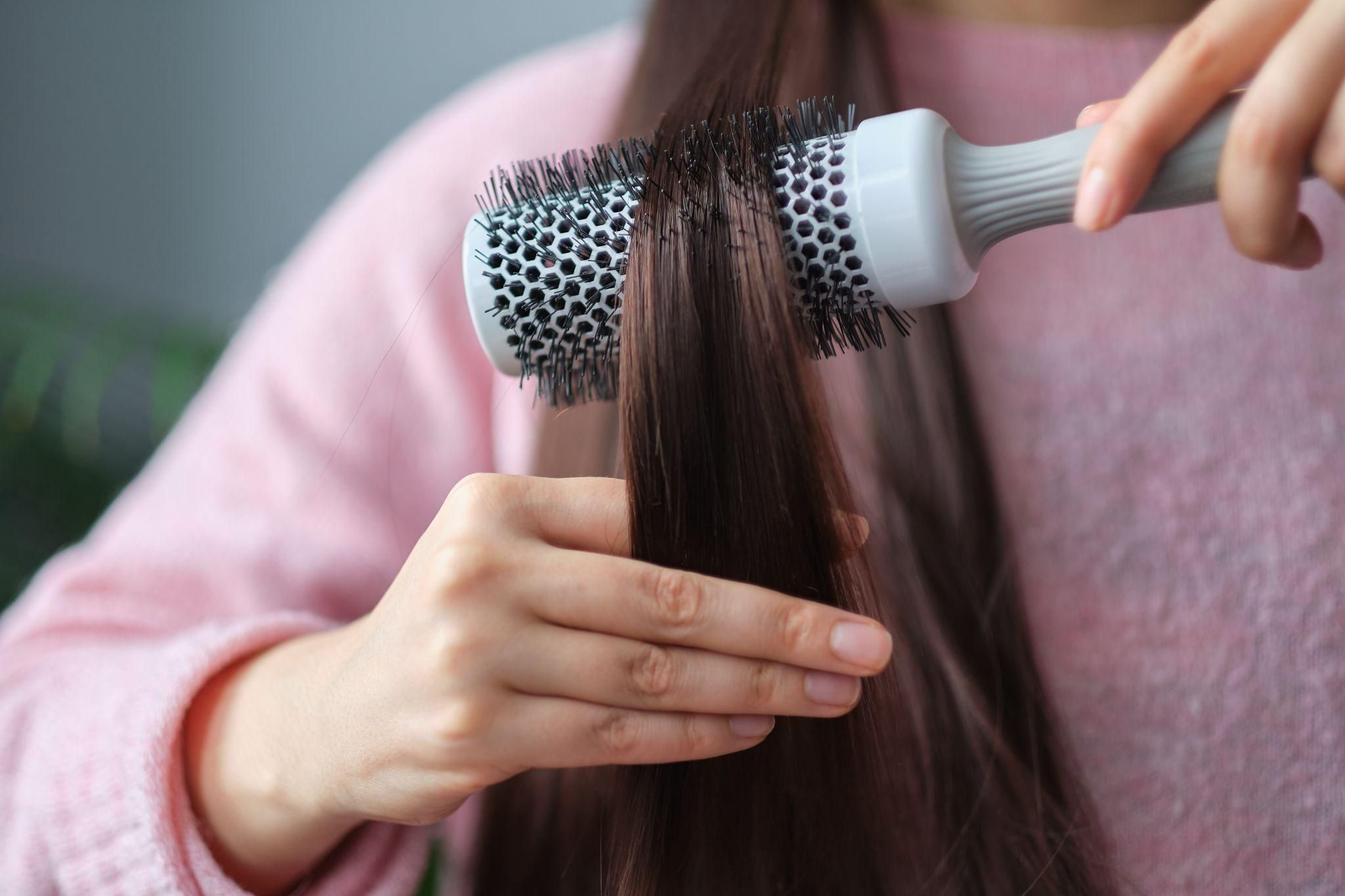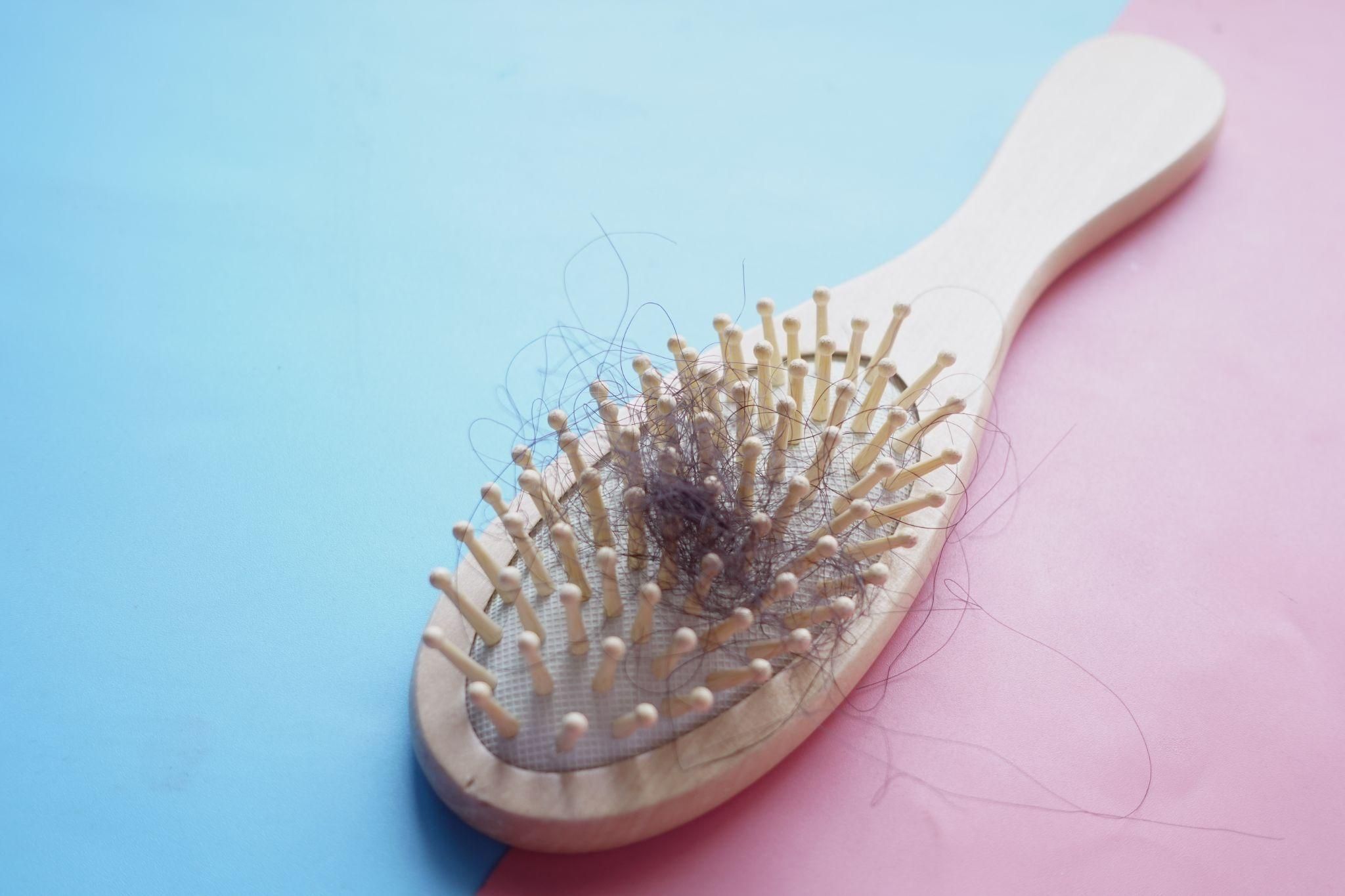Introduction
Postpartum hair loss, medically known as telogen effluvium, is a temporary condition many mothers experience after childbirth. This shedding results from hormonal shifts as the body adjusts after pregnancy. While natural, the sight of hair clumps falling out can be distressing. By implementing proactive strategies, including proper antenatal care, stress management, and a nutrient-rich diet, you can minimise postpartum hair loss and encourage healthier hair regrowth.
This comprehensive guide provides actionable advice on preventing postpartum hair loss, focusing on antenatal care, nutrition, stress management, and postpartum hair care routines.
What Causes Postpartum Hair Loss?
The Science Behind Postpartum Hair Shedding
During pregnancy, elevated oestrogen levels extend the growth phase (anagen phase) of hair, leading to fuller and thicker locks. However, after childbirth, oestrogen levels drop, causing hair follicles to enter the resting phase (telogen phase). This transition triggers shedding, typically peaking three to four months postpartum.
Dermatologists from the American Academy of Dermatology (AAD) note that postpartum hair loss is temporary and should resolve within 6-12 months as the hair growth cycle normalises.
When to Seek Help
If hair shedding persists beyond a year or is accompanied by symptoms like fatigue or dry skin, it may indicate underlying conditions like anaemia or thyroid dysfunction. Consult a healthcare provider for proper evaluation.
The Role of Antenatal Care in Hair Health
How Antenatal Care Can Reduce Hair Loss
Antenatal care is essential for ensuring the health of both mother and baby. It addresses nutritional deficiencies and stressors that can exacerbate postpartum hair loss.
Antenatal Steps for Hair Health:
Attend Regular Antenatal Appointments: These visits help monitor iron and vitamin levels, ensuring your body has the nutrients needed to support healthy hair growth.
Take Antenatal Vitamins: Nutrients like biotin, folic acid, and iron are crucial for maintaining hair strength and preventing excessive shedding.
Leverage Antenatal Support: Joining a support group or attending antenatal classes near me provides guidance on postpartum care, including hair loss prevention.
Shop Now: Best Antenatal Vitamins for Hair Health
Nutrition for Preventing Postpartum Hair Loss
Key Nutrients for Healthy Hair
Dr Francesca Fusco, a dermatologist specialising in hair loss, explains that “nutritional deficiencies during and after pregnancy are a common trigger for hair thinning.” A well-balanced diet is critical to minimising postpartum shedding.
Nutrients to Include:
Protein: The building block of hair. Incorporate lean meats, eggs, legumes, and nuts into your meals.
Iron: Supports oxygen delivery to hair follicles. Iron-rich foods include spinach, lentils, and fortified cereals.
Vitamin D: Vital for follicle health. Get it from sunlight, fortified milk, or supplements.
Omega-3 Fatty Acids: Found in salmon, walnuts, and flaxseeds, these nourish the scalp and support hair growth.
Zinc and Selenium
Meal Ideas for Healthy Hair
Here are some nutrient-rich meal ideas to support postpartum hair recovery:
Breakfast: Scrambled eggs with spinach and avocado on whole-grain toast.
Lunch: Grilled chicken salad with quinoa, mixed greens, and a lemon vinaigrette.
Dinner: Baked salmon with roasted sweet potatoes and steamed broccoli.
Snacks: Greek yoghurt topped with chia seeds and fresh berries, or a handful of almonds.
Shop Now: Prenatal and Postnatal Supplements for Hair Health
Managing Stress to Minimise Hair Loss
How Stress Impacts Hair Growth
Stress can disrupt the hair growth cycle, causing more hair follicles to enter the resting phase. Elevated cortisol levels (a stress hormone) are a known contributor to postpartum hair loss. Incorporating stress management techniques into your routine is vital for hair recovery.
Antenatal Yoga for Relaxation
Antenatal yoga is a gentle and effective way to reduce stress during and after pregnancy. It promotes blood circulation, including to the scalp, which helps nourish hair follicles.
Recommended Yoga Poses for Hair Health:
Child’s Pose (Balasana): Relieves tension and encourages blood flow to the scalp.
Cat-Cow Stretch: Improves circulation to the scalp and strengthens the back.
Downward-Facing Dog: Enhances overall blood flow and promotes relaxation.
Join Now: Online Pregnancy Yoga Classes
Benefits of Antenatal Massage
A prenatal massage reduces cortisol levels, promotes better circulation, and supports hormonal balance, all of which indirectly benefit hair health. It’s also a great way to prioritise self-care and relaxation during the antenatal and postpartum periods.
Key Benefits:
Improves blood flow to the scalp.
Reduces muscle tension and promotes relaxation.
Supports emotional well-being during pregnancy.
Book Now: Find Certified Antenatal Massage Therapists
Postpartum Hair Care Routine
Gentle Hair Care Practices
Adopting a gentle hair care routine can help minimise breakage and support healthy regrowth during the postpartum period.
Use Sulphate-Free Shampoo: Look for shampoos that cleanse without stripping natural oils.
Condition Regularly: Keep hair hydrated to prevent dryness and breakage.
Avoid Tight Hairstyles: Opt for loose buns or braids to reduce tension on the scalp.
Detangle Gently: Use a wide-tooth comb to minimise hair breakage.
Shop Now: Best Hair Care Products for Postpartum Hair
Scalp Massages for Hair Growth
Massaging your scalp with nourishing oils like rosemary or castor oil stimulates blood flow to the hair follicles and encourages regrowth. You can use your fingertips or a specialised scalp massager for better results.
Leveraging Antenatal Clinics and Resources
Why Regular Antenatal Checkups Matter
Attending regular checkups at an antenatal clinic ensures that your overall health is monitored throughout pregnancy. Conditions like anaemia, hypothyroidism, or nutritional deficiencies that contribute to postpartum hair loss can be identified and treated early.
The Role of Antenatal Education
Enrolling in antenatal classes near me provides valuable information on postpartum changes, including strategies to manage hair loss. These sessions often include expert advice on self-care, nutrition, and stress management.
Supplements and Treatments for Postpartum Hair Loss
Postnatal Supplements for Hair Recovery
In addition to antenatal vitamins, postnatal supplements can support hair regrowth. Look for products that contain biotin, collagen, silica, and keratin for enhanced benefits.
Shop Now: Postnatal Hair Growth Supplements
Effective Topical Treatments
Over-the-counter treatments such as minoxidil are clinically proven to promote hair regrowth. For a natural alternative, try scalp serums infused with caffeine or essential oils like peppermint and rosemary.
When to Seek Professional Help
If postpartum hair loss persists beyond 12 months or worsens significantly, consult a dermatologist or trichologist. Medical conditions like alopecia or scalp infections may require advanced treatments such as platelet-rich plasma (PRP) therapy or prescription medications.
Conclusion
Preventing postpartum hair loss requires a proactive approach, starting with proper antenatal care. Regular antenatal appointments, a nutrient-rich diet, and stress management practices like antenatal yoga and prenatal massage can all contribute to healthier hair. By adopting a gentle hair care routine and leveraging professional resources, you can minimise shedding and encourage regrowth. Remember, postpartum hair loss is temporary, and with consistent care, your hair will recover.
References
- The Ultimate Antenatal Classes
Prepare for labour, birth, and baby care with nine experts, including senior NHS midwives and an award-winning obstetrician!
https://unii.com/en/journey/ultimate-antenatal-classes





